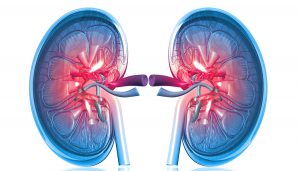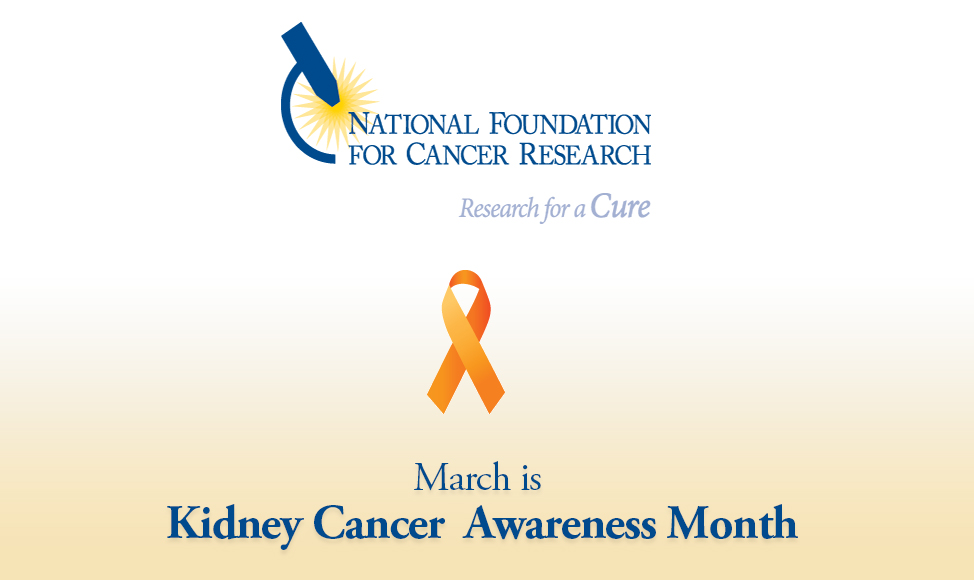Kidney Cancer Intervention & Prevention
This month is Kidney Cancer Awareness Month, and March 8, is World Kidney Day. In this National Foundation for Cancer Research blog post, we will look at recent scientific advances in the battle against the most common form of the disease: Renal Cell Carcinoma (RCC).
In 2018, just under 64,000 people will be diagnosed with kidney cancer in the United States. This staggering statistic places kidney cancer as one of the top 10 common cancers in the U.S. Luckily, we are starting to see groundbreaking medical intervention strategies for people suffering from RCC, its most prevalent iteration. We are also now able to identify major lifestyle approaches for RCC and other cancer risk mitigation efforts.
Intervention
Emerging research coming out of the Georgetown Lombardi Comprehensive Cancer Center has people in the RCC community excited. This research shows promising antitumor results with combining immunotherapy agents with anti-angiogenesis agents without adverse effects. This approach has been taken before but with much less success, due to the toxicities which developed from the combined treatments. However, the combination of axitinib (Inlyta) and pembrolizumab (Keytruda) has now shown significant antitumor results in people with advanced kidney (also known as renal) cancers, without the toxicities that were previously experienced.

The current standard treatment option for patients with early detected lung cancer and comorbidities (other medical conditions), has now been proven to be effective and safe for those with RCC. This treatment is stereotactic ablative radiotherapy (SABR). Stereotactic ablative radiotherapy (SABR) is a highly focused radiation treatment that gives an intense dose of radiation concentrated on a tumor, while limiting the dose to the surrounding organs. The recent research in the use of this treatment towards RCC has provided important information showing that it is effective, safe, well-tolerated and can preserve kidney function.
Kidney Cancer Prevention
Although treatments for kidney cancer are swiftly progressing, it is still of great importance to focus on prevention. The major risk factors for kidney cancer are smoking, obesity and high-blood pressure. Interestingly, there is a question of if antihypertensive medications (which reduce blood pressure) may actually be a risk factor for kidney cancer. The evidence is polarized and inconclusive in this area. Regardless, it is advised to address these three areas of health with a holistic approach. Finding the time to exercise, reducing stress, improving diet and taking the necessary steps to quit smoking will not only increase quality of life but also significantly reduce the likelihood of getting many different cancers, including RCC.
It is advised to set small, manageable goals which can build on themselves. These may include simply eating a banana four times a week or contacting a professional about quitting smoking. Continue to read more NFCR blog posts to learn more about healthy living and cancer prevention.
References:
https://www.cancer.org/cancer/kidney-cancer/about/key-statistics.html
https://www.ncbi.nlm.nih.gov/pmc/articles/PMC2359653/#bib7
https://www.ncbi.nlm.nih.gov/pmc/articles/PMC3188386/
https://medicalxpress.com/news/2018-02-immunotherapy-combination-tolerable-effective-patients.html












